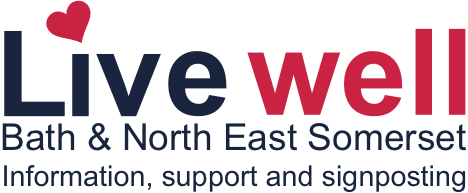As part of Preparing for Adulthood, some young people may require a needs assessment from Adult Social Care, called a transition assessment.
A young person can begin their transition into adult services, as part of the preparing for adulthood journey, from year 9 (age 14). A Transitions Assessment can be requested to understand the needs of anyone over the age of 14. This is called a Child Assessment under the Care Act 2014.
What is a Transitions Assessment?
A Transitions Assessment would be undertaken at the most appropriate time for the Young Person regardless of their age or referral. This is to understand the care and support needs of the Young Person, contribute to any Education, Health and Care Plan (EHCP), and understand the Young Person's needs once they turn 18.
A young person will continue to receive existing care and support from Children's Social Care and/or SEND whilst the Transitions Assessment is undertaken.
A Transitions Assessment should be requested as part of the Education, Health and Care Plan (EHCP) Annual Review, if it is likely the Young Person will have care and support needs once they turn 18.
The assessment will assess the needs of the Young Person in relation to:
- health and social care
- mental health
- education
- financial benefits for the young person and their family
- work
- housing
You can contact Adult Social Care to request a transitions assessment by completing a Transitions Referral.
Child's Carers Assessment
Any carer of a young person with additional needs (including young carers who themselves are approaching the age of 18) are entitled to a Child's Carers Assessment. This will be undertaken to understand their needs to continue their caring roles. This assessment will consider the carer's wellbeing, any outcomes they would like to achieve, whether they are willing and able to continue in their caring role and whether they would like to access work, education or training.
What happens once the assessment is completed?
The Young Person will receive a copy of their assessment which will give an indication to the young person of which of their needs are likely to be eligible for support from Adult Social Care. If a young person's needs are not eligible for adult services, the young person will be given information and advice about what other support they can access.
If Adult Social Care will be meeting the young person's eligible adult social care needs after they have turned 18, a Care and Support Plan will be created. If the young person has an EHCP, the Care and Support Plan will form part of this.
For carers, a Care and Support Plan will also be drawn up highlighting any identified outcomes, how they can be realised and any support that is needed to make that happen (including funding support).
Making decisions
Any young person over the age of 16 is presumed to have the capacity to make decisions about their life and choices (Mental Capacity Act). If a young person lacks capacity in any area, any decisions made in relation to them must be made in their best interests. Appropriate methods should be taken to gather the young person's views, wishes and feelings, as well as the views of anyone caring for the young person.
Mencap has a Mental Capacity Act guide for parent carers which can be found on their website.
Advocacy
Sometimes people need help expressing their wishes or understanding information around health and care support decisions. An advocate is someone who can help with this. Find out more about Advocacy within the Adults section of Live Well B&NES.
Funding for Adult Services
Once a person turns 18, their services are funded by adult social care, and funding will be assessed using the young adult's income as opposed to their parent carers.
You can find more information about funding these services by visiting the Paying for Care and Support pages within the Adults section of Live Well B&NES.
More information about Preparing for Adulthood
You can find more information on the Preparing for Adulthood section of Live Well B&NES. You will find information relating to post 16 education, training and employment options, social opportunities, health support, housing options, and travel and transport.
Last updated: 6 November 2024
